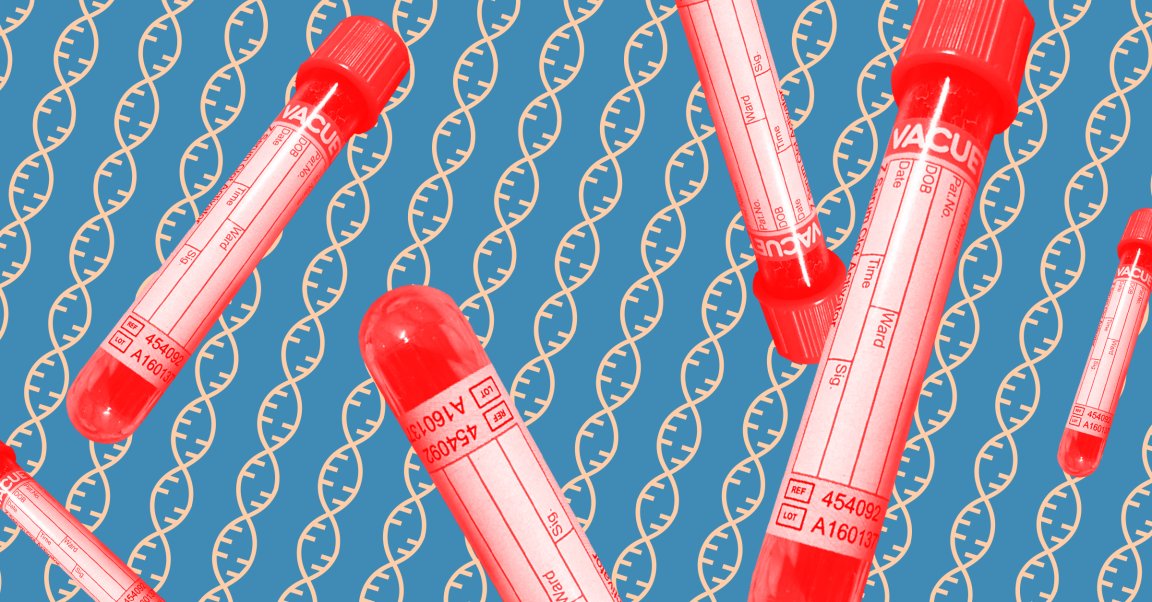
Genetic tests that were once only available through doctors are now sent right to your mailbox. PerkinElmer and its consumer genomics marketplace, Helix, have announced that they will soon start selling tests for serious genetic diseases.
Helix’s new offerings could make it a strong competitor against genetic testing giant 23andMe, which currently offers a limited array of tests for health conditions (which will soon see cancer risk added to the mix) alongside the ancestry tests that made it famous.
Unlike 23andMe, Helix combines its genetic testing service with offerings from third parties (MIT Tech Review compared it to a “DNA app store”), giving users a wide array of products that utilize their genomic data. Maybe you want to learn about how much Neanderthal DNA you have? There’s an app for that. How about socks, shirts and prints personalized with stripes meant to represent your DNA variants? That’s there, too. Helix’s store even offers a test, from a company called “Vinome,” that claims to select the best wines for you based on your genetics.
Helix’s parent company, Illumina, has spent the past 15 years selling the machines that researchers worldwide use to sequence human DNA. But its foray into direct-to-consumer testing speaks to consumers’ insatiable demand for genetic tests to tell them anything they may want to know about themselves, and the tests’ potential to make the company a whole genome-load of cash.
By giving consumers the option to continue interacting with their DNA long after that first spit, Helix gives itself a chance to keep making money. Instead of the individual tests offered by 23andMe, consumers can order test after test as Helix partners with new third-party organizations. And after that initial $80 sequencing charge, they only have to pay $29.99 for each subsequent test. Why get new customers when you can get the same ones to keep paying?
Should you be wary of Helix? In general, it presents many of the same risks as other direct-to-consumer tests: that disease risk is often too complex to educate patients about in a one-way online portal; that DNA-based traits are also influenced by other factors; that genetic tests themselves can yield false results; and that the accuracy of tests is determined by what populations they’ve tested before. (Indeed, the page for the Vinome test states “Some results may be less accurate for individuals of non-European ancestry.”)
But Helix does offer unique risks: that the company will take advantage of consumers’ relatively immature knowledge of how DNA works, plus their unceasing curiosity, in their constant pursuit of sweet, sweet cash. These “second-wave” testing companies have been popping up more frequently, offering everything from dating services to dieting advice based on genetics. And though Helix says it vets the science behind every third-party app, it also notes in its terms of service: “Partners are responsible for the content of their DNA Product(s), including the scientific basis of each product and the information each product provides,” and Helix “is neither responsible nor liable for the content.”
Ideally, a customer who wants to know whether they’re at risk for the diseases that Helix is testing for (or even dieting advice based on their genes) would consult a doctor. However, as a genetic counselor pointed out to Wired, that can require specialized expertise and can run up thousands of dollars in bills. (Hence, the growth of cheap, mass-sequencing companies.)
Since it seems like these companies are the direction that genetics are going, we can at least hope that companies are rigorously evaluation what patients see, and not trading patient trust for an easy buck.